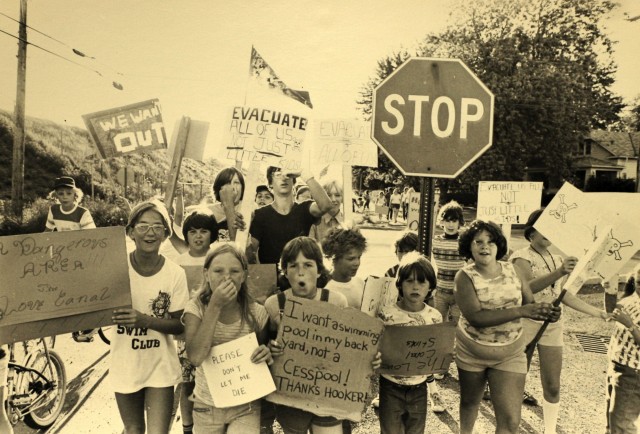
Aaron Sorkin will have something to say as host of Metrograph film series
Metrograph Digital
February 16-19, members only
metrograph.com
Back in the before times, you had to trudge to independent movie theaters all over the city to catch special screenings and live events, from BAM and the Museum of the Moving Image to the Quad, Lincoln Center, Film Forum, the Angelika, IFC, Metrograph, and others. But now you can watch everything from the friendly confines of your home, on your comfy couch, streamed from all over the world. One of the best deals is Metrograph Digital, the online platform of the Lower East Side cinema. For $5 a month or $50 a year, you gain access to great programming, including live screenings, previews, and talks. Up next is “Aaron Sorkin in Residence,” in which the fifty-nine-year-old Manhattan native and award-winning screenwriter, director, and playwright introduces five films that he wrote and/or directed, along with four films that influenced him. The four-day series begins February 16 at 6:30 with David Fincher’s Facebook flick, The Social Network, which Sorkin scripted and makes a cameo in. That will be followed by a trio of livestreamed double features: Moneyball and The Hot Rock, Molly’s Game and Downhill Racer, and The Trial of the Chicago 7 and Inherit the Wind. Sorkin, the mastermind behind such television series as The West Wing, The Newsroom, and Sports Night and author of such plays as A Few Good Men and adaptations of To Kill a Mockingbird and The Farnsworth Invention, will take part in a conversation with fellow activist Bradley Whitford, who won an Emmy for his role as Josh Lyman in The West Wing and starred as Danny Tripp in Sorkin’s Studio 60 on the Sunset Strip, following the Chicago 7 screening.
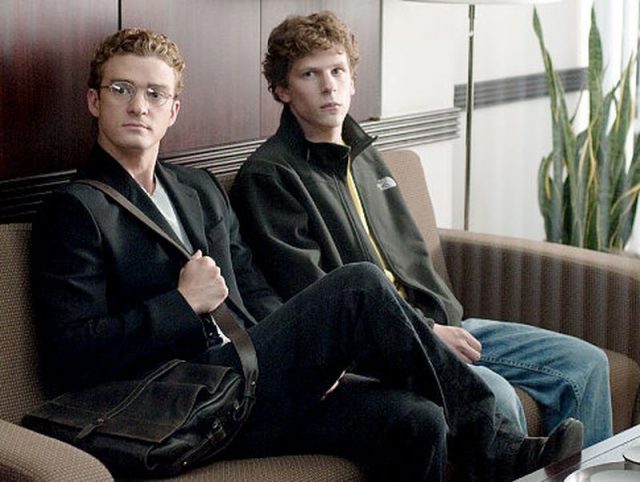
Justin Timberlake and Jesse Eisenberg are a couple of high-profile whiz kids in David Fincher’s The Social Network
THE SOCIAL NETWORK (David Fincher, 2010)
Tuesday, February 16, 6:30
metrograph.com
Nominated for eight Oscars and winner of three, The Social Network stars Jesse Eisenberg (The Squid and the Whale, Adventureland) as computer whiz kid Mark Zuckerberg, the boy genius who developed what became Facebook while attending Harvard. The film is told primarily in flashback as Zuckerberg is being sued for having allegedly stolen the idea from the Winklevoss twins (both played by Armie Hammer). Zuckerberg is depicted as a spiteful, mean-spirited, self-indulgent person trying to prove to his ex-girlfriend (Erica Albright) that he will amount to something. Justin Timberlake is outstanding as the fast-moving, smooth-talking Sean Parker, the founder of Napster who loves living the high life. For a young man who created a social media platform where people collect friends, Zuckerberg made a lot of enemies on his way to the top. The film was written by Aaron Sorkin (A Few Good Men, The West Wing), who makes an appearance as an ad executive meeting with Zuckerberg, and directed by David Fincher, who has made such other terrific films as Fight Club, Zodiac, and The Curious Case of Benjamin Button. “To compare your own work to Citizen Kane takes a lot of confidence . . . or something. But David Fincher kept drawing comparisons, and when Fincher talks about movies, I find it best to agree,” Sorkin says of the film.
MONEYBALL (Bennett Miller, 2011) & THE HOT ROCK (Peter Yates, 1972)
Wednesday, February 17, 6:30 & 9:30
metrograph.com
After winning 102 games during the 2001 season but then falling to the New York Yankees in the American League Division Series in five tough games, the cash-poor Oakland A’s also lost three of their most prominent players, Jason Giambi, Johnny Damon, and Jason Isringhausen, to free agency. To rebuild the team with limited funds, general manager Billy Beane (Brad Pitt) turns to an unexpected source: Peter Brand (Jonah Hill), a young stat geek who believes that on-base percentage is the key to the game. The A’s scouts find it hard to believe that Beane is looking at has-been catcher Scott Hatteberg (Chris Pratt), aging outfielder David Justice (Stephen Bishop), and underperforming submariner Chad Bradford (Casey Bond) to get the A’s to the World Series, as does manager Art Howe (Philip Seymour Hoffman), who refuses to use the new players the way Beane insists. But when the A’s indeed start winning after a few more questionable deals pulled off by Beane and Brand, the entire sport world starts taking a much closer look at what is soon known as “moneyball.”
Based on the 2003 bestseller Moneyball: The Art of Winning an Unfair Game by Michael Lewis, Moneyball is an exciting film even though the vast majority of it occurs off the field. Pitt is wonderfully understated as Beane, a former five-tool prospect for the Mets and divorced father of a twelve-year-old girl (Kerris Dorsey). Pitt earned an Oscar nod for Best Actor for his portrayal of the real-life Beane, a confident but nervous man who may or may not have a big chip on his shoulder. Hill was nominated for Best Supporting Actor for his role as wiz-kid Brand, a fictional character inspired by Paul DePodesta, who refused to let his name and likeness be used in the film; Brand instead is an amalgamation of several of the people who work for Beane. Director Bennett Miller (The Cruise, Capote) takes the viewer into a number of fascinating back-room dealings, including a revealing scene in which Beane tries to acquire Ricardo Rincon from the Cleveland Indians, furiously working the phones to pull off the deal. Also nominated for Best Picture, Best Editing, Best Sound Mixing, and Best Adapted Screenplay by Steven Zaillian and Aaron Sorkin, Moneyball firmly belongs in the playoff pantheon of great baseball movies, with the added bonus that you don’t have to be a fan or know a lot about the game to get sucked into its intoxicating tale.
Sorkin is pairing the film with Peter Yates’s fab 1972 caper comedy, The Hot Rock, in which Robert Redford, George Segal, Ron Leibman, and Paul Sand attempt to steal a gem from the Brooklyn Museum for Moses Gunn; the film is highlighted by a memorable turn from Zero Mostel. Sorkin says about the double feature, “These two films have almost nothing in common except that I saw The Hot Rock when I was very young and I’ve liked posses ever since. A gang of lovable misfits trying to do something impossible. Steal a diamond, win the World Series with the lowest payroll in baseball . . . same thing.”
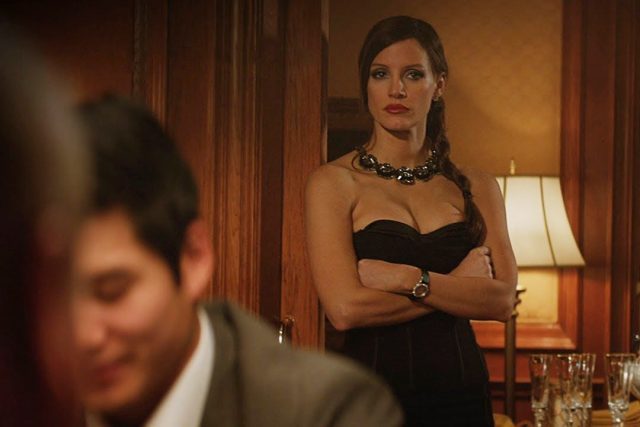
Jessica Chastain in fully in charge in gambling thriller Molly’s Game
MOLLY’S GAME (Aaron Sorkin, 2017) & DOWNHILL RACER (Michael Ritchie, 1969)
Thursday, February 18, 6:30 & 9:30
metrograph.com
Jessica Chastain is sexy and sensational as Molly Bloom in Aaron Sorkin’s directorial debut, Molly’s Game. Sorkin earned his third screenplay Oscar nomination for his adaptation of Bloom’s 2014 memoir, Molly’s Game: From Hollywood’s Elite to Wall Street’s Billionaire Boys Club, My High-Stakes Adventure in the World of Underground Poker. Bloom, not to be confused with the character in James Joyce’s Ulysses, is a freestyle skier preparing for the Olympics when a terrible accident suddenly ends her career. She soon finds herself working for an asshole real estate developer (Jeremy Strong), both in the office and running a big-time poker game featuring major celebrities and businessmen. Despite her attempts to keep it all legal, she is busted by the feds and is hesitantly represented by lawyer Charles Jaffey (Idris Elba), who wants her to name names to stay out of jail. The film is nearly two and a half hours but flies by; two-time Oscar nominee Chastain (Zero Dark Thirty, The Tree of Life) is mesmerizing as she manages a ragtag bunch of wealthy men playing hands worth tens and hundreds of thousands of dollars, portrayed by a cast that includes Bill Camp, Chris O’Dowd, Brian d’Arcy James, and Michael Cera as Player X, who is in it not to win it but to destroy lives. Kevin Costner is Molly’s hard-driving father.
Sorkin has paired the film with Michael Ritchie’s 1969 sports drama Downhill Racer, in which Robert Redford stars as a selfish and sexy skier determined to become a champion while at odds with his father (Walter Stroud) and coach (Gene Hackman). One of four screenplays written by novelist James Salter, Downhill Racer is an underrated gem, with lots of superb skiing. Sorkin notes in a spoiler alert, “The only thing these two films have in common is competitive skiing. But the moment at the end of Downhill Racer, when everyone’s celebrating Redford’s record-breaking run while Hackman has his eye on a skier who’s about to beat Redford’s run but ends up wiping out just before the finish line, helped give me the idea for the opening of Molly’s Game.”
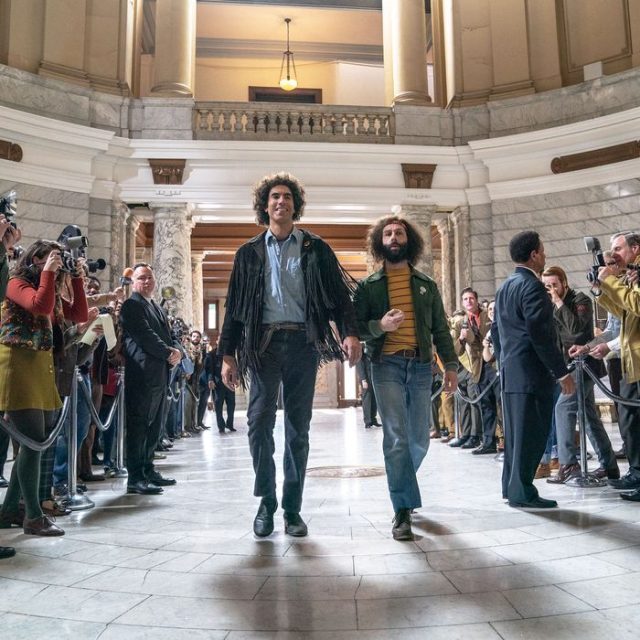
Abbie Hoffman (Sacha Baron Cohen) and Jerry Rubin (Jeremy Strong) are on the case in The Trial of the Chicago 7
THE TRIAL OF THE CHICAGO 7 (Aaron Sorkin, 2020) & INHERIT THE WIND (Stanley Kramer, 1960)
Friday, February 19, 6:30 & 9:30
metrograph.com
In an eerily timely drama based on real events, Aaron Sorkin’s The Trial of the Chicago 7 goes behind the scenes of the protests, arrest, and trial of eight men accused of inciting a riot at the tumultuous 1968 Democratic National Convention in the Windy City: Tom Hayden (Eddie Redmayne), Abbie Hoffman (Sacha Baron Cohen), Rennie Davis (Alex Sharp), Jerry Rubin (Jeremy Strong), David Dellinger (John Carroll Lynch), Lee Weiner (Noah Robbins), John Froines (Daniel Flaherty), and Bobby Seale (Yahya Abdul-Mateen II). The trial is overseen by seriously biased judge Julius Hoffman (Frank Langella), with Mark Rylance as defense counsel William Kunstler, Ben Shenkman as defense counsel Leonard Weinglass, Joseph Gordon-Levitt as assistant federal prosecutor Richard Schultz, J. C. MacKenzie as chief federal prosecutor Tom Foran, Kelvin Harrison Jr. as Black Panther leader Fred Hampton (whose story is now being told in Judas and the Black Messiah), Michael Keaton as US attorney general Ramsey Clark, and John Doman as Clark’s successor, John N. Mitchell. The film can be a bit scattershot, but it humanizes these legendary figures and reveals a corrupt justice system that wanted to shut these men up so much that Judge Hoffman even had Seale bound and gagged at one point.
To accompany his latest film, Sorkin has chosen one of the greatest courtroom movies ever made, Stanley Kramer’s 1960 classic, Inherit the Wind. Nominated for four Oscars (but not Best Picture?!?), the film fictionalizes the 1925 Scopes Monkey Trial, a battle in a Tennessee town over the right to teach evolution in school. Kramer takes on creationism and McCarthyism in the film, which pits Henry Drummond (Spencer Tracy) against Matthew Harrison Brady (Fredric March), channeling Clarence Darrow and William Jennings Bryan, in an acting tour de force that also includes Gene Kelly, Dick York, Harry Morgan, Claude Akins, Noah Beery Jr., Norman Fell, and Richard Deacon. “The Bible is a book. It’s a good book, but it is not the only book,” Drummond says. And reporter E. K. Hornbeck (Kelly) explains, “I do hateful things for which people love me, and I do lovable things for which they hate me. I’m admired for my detestability. Now don’t worry, little Eva. I may be rancid butter, but I’m on your side of the bread.” The double feature comes at a time when the former president has just been acquitted of inciting a riot at the Capitol, evolution is still a heavily debated topic in schools, and much of America believes the media is fake news; you can expect those issues and more to be discussed in the conversation between Sorkin and West Wing star Bradley Whitford that follows the live screening of The Trial of the Chicago 7.
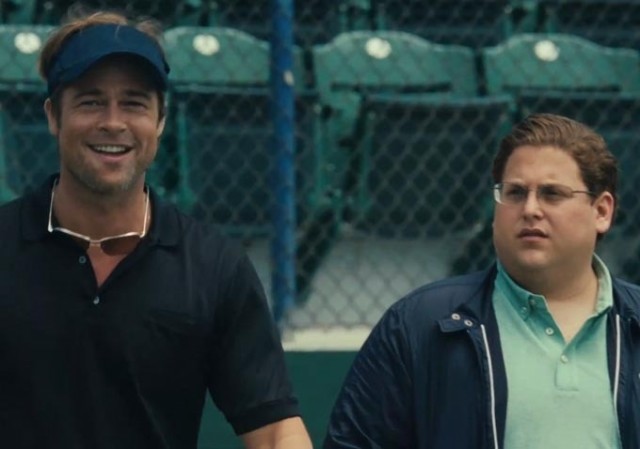
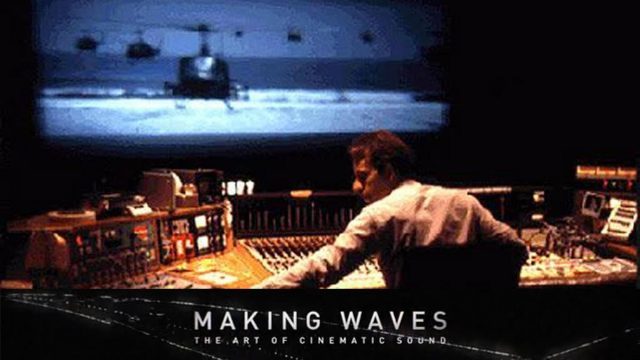
 Longtime sound editor and teacher Midge Costin pays tribute to her discipline in the eye- and ear-opening documentary Making Waves: The Art of Cinematic Sound, having its world premiere this week at the Tribeca Film Festival. The celebration of sound focuses on three of the best in the business: three-time Oscar winner Walter Murch (Apocalypse Now, The English Patient), four-time Oscar winner Ben Burtt (E.T. the Extra-Terrestrial, Star Wars), and seven-time Oscar winner Gary Rydstrom (Saving Private Ryan, Toy Story). “Before we were born, you’re looking at darkness. Sound is the first sense that’s plugged in,” Murch says at the beginning of the film. “Six months, seven months into the womb, it’s hearing the mother’s heartbeat, it’s hearing her breathing, it’s hearing Dad shouting from the garage. It’s making sense of the world. You have emerged into a kind of consciousness using only sound. And then you’re born. Sound affects us in a deeper way almost than image does. It goes deeper. And yet we’re naturally, seemingly oblivious to that.”
Longtime sound editor and teacher Midge Costin pays tribute to her discipline in the eye- and ear-opening documentary Making Waves: The Art of Cinematic Sound, having its world premiere this week at the Tribeca Film Festival. The celebration of sound focuses on three of the best in the business: three-time Oscar winner Walter Murch (Apocalypse Now, The English Patient), four-time Oscar winner Ben Burtt (E.T. the Extra-Terrestrial, Star Wars), and seven-time Oscar winner Gary Rydstrom (Saving Private Ryan, Toy Story). “Before we were born, you’re looking at darkness. Sound is the first sense that’s plugged in,” Murch says at the beginning of the film. “Six months, seven months into the womb, it’s hearing the mother’s heartbeat, it’s hearing her breathing, it’s hearing Dad shouting from the garage. It’s making sense of the world. You have emerged into a kind of consciousness using only sound. And then you’re born. Sound affects us in a deeper way almost than image does. It goes deeper. And yet we’re naturally, seemingly oblivious to that.”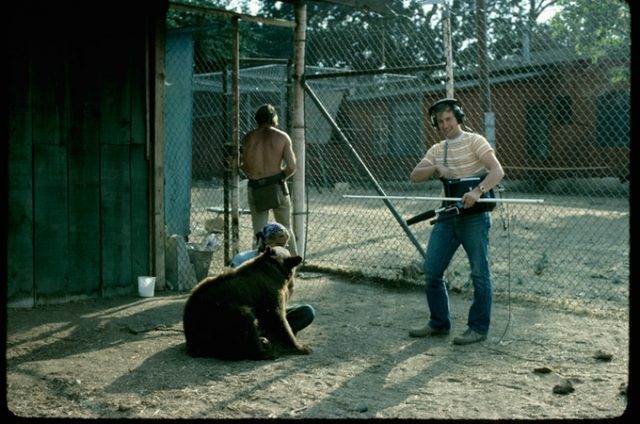
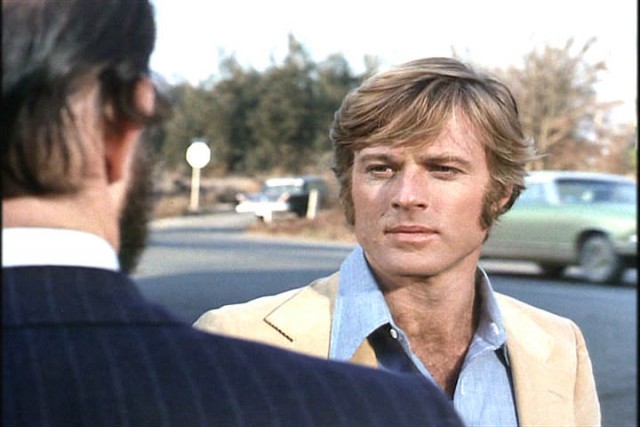
 Four years before playing real-life Washington Post investigative reporter Bob Woodward, who along with Carl Bernstein (Dustin Hoffman) blew the lid off the Watergate cover-up, in the Oscar-nominated All the President’s Men, Robert Redford found himself portraying the other side of the political spectrum, starring as a progressive legal aid lawyer who is chosen to run for the Senate in Michael Ritchie’s savvy, documentary-style film The Candidate. The Democratic Party needs someone to run against incumbent Republican Senator Crocker Jarmon (Gidget’s Don Porter), so political operative Marvin Lucas (Peter Boyle) approaches McKay, an attractive, well-respected, and popular community activist whose father, John J. McKay (Melvyn Douglas), was California governor. At first the younger McKay has no interest in running for office, but when Lucas tells him he can say whatever he wants to get his message out — because he’ll have no chance to win — McKay signs on. He hits the streets shaking hands and spreading his philosophy, closely followed by media man Howard Klein (Allen Garfield), who is amassing footage for television advertisements promoting “the better way” with Bill McKay. (McKay’s ads are narrated by Barry Sullivan, who appeared with Redford in Tell Them Willie Boy Is Here, Jarmon’s commercials by Broderick Crawford, who won an Oscar for playing the Huey Long–like Louisiana governor Willie Stark in All the King’s Men in 1949.) It’s clear from the start that McKay is a political newbie while Jarmon is a seasoned pro who knows all the right things to say and do, but McKay’s grass-roots approach soon begins taking hold, and as the race heats up, the challenger is suddenly faced with tough decisions about taking power, compromising his principles, and falling in line with the party machine instead of fighting the good fight as he has done all his life.
Four years before playing real-life Washington Post investigative reporter Bob Woodward, who along with Carl Bernstein (Dustin Hoffman) blew the lid off the Watergate cover-up, in the Oscar-nominated All the President’s Men, Robert Redford found himself portraying the other side of the political spectrum, starring as a progressive legal aid lawyer who is chosen to run for the Senate in Michael Ritchie’s savvy, documentary-style film The Candidate. The Democratic Party needs someone to run against incumbent Republican Senator Crocker Jarmon (Gidget’s Don Porter), so political operative Marvin Lucas (Peter Boyle) approaches McKay, an attractive, well-respected, and popular community activist whose father, John J. McKay (Melvyn Douglas), was California governor. At first the younger McKay has no interest in running for office, but when Lucas tells him he can say whatever he wants to get his message out — because he’ll have no chance to win — McKay signs on. He hits the streets shaking hands and spreading his philosophy, closely followed by media man Howard Klein (Allen Garfield), who is amassing footage for television advertisements promoting “the better way” with Bill McKay. (McKay’s ads are narrated by Barry Sullivan, who appeared with Redford in Tell Them Willie Boy Is Here, Jarmon’s commercials by Broderick Crawford, who won an Oscar for playing the Huey Long–like Louisiana governor Willie Stark in All the King’s Men in 1949.) It’s clear from the start that McKay is a political newbie while Jarmon is a seasoned pro who knows all the right things to say and do, but McKay’s grass-roots approach soon begins taking hold, and as the race heats up, the challenger is suddenly faced with tough decisions about taking power, compromising his principles, and falling in line with the party machine instead of fighting the good fight as he has done all his life.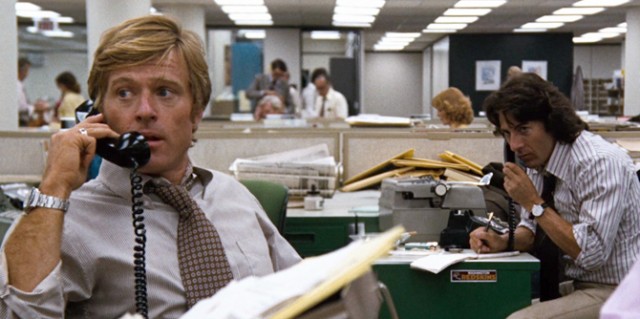
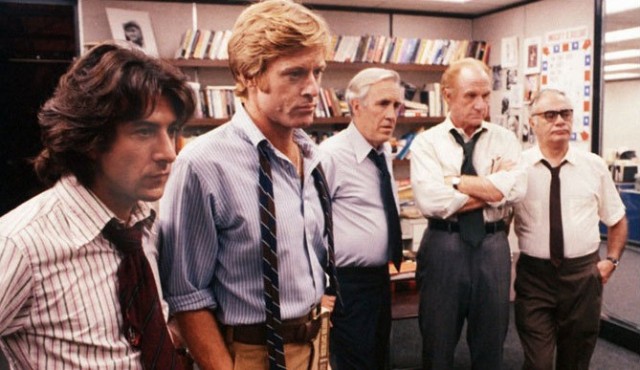
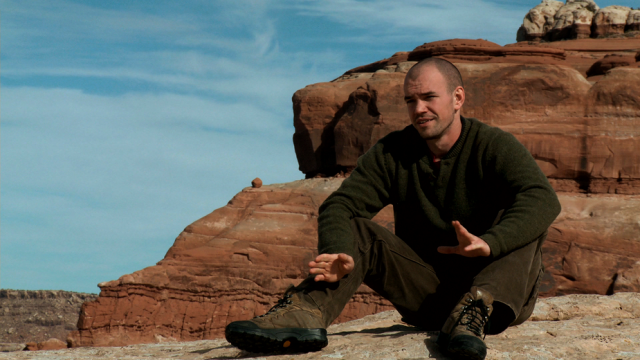
 Can one person really make a difference? In Bidder 70, directors Beth and George Gage tell the inspiring story of Tim DeChristopher, who has followed in the footsteps of such peaceful, nonviolent protestors as Rosa Parks, the Reverend Dr. Martin Luther King Jr., and Mahatma Gandhi, although the humble West Virginia native wouldn’t dare put himself in such lofty company. In December 2008, DeChristopher attended a Utah Bureau of Land Management oil and gas lease auction without a real plan, knowing only that he had to do something to keep the pristine wilderness land out of the hands of corporate drillers; he ended up winning bids on more than twenty-two thousand acres for $1.7 million without any intention of actually paying, so he was arrested and charged with two felonies that could put him in prison for a long time. But he just couldn’t sit back and let the sale take place, and he’s willing to face the consequences. “It’s really hard for me to not think about climate change with anything that we’re doing,” the West Virginia native says in the film while relaxing in a vast, rocky landscape. “It’s this big weight that our generation is bearing on our shoulders, and it’s like something chasing us, that’s getting closer all the time. We’ve always been told that things are just beyond our control and that corporations have all the power, and we don’t often get to be reminded that we’re citizens of what was once the greatest democracy on the planet and that we’re human beings with the power to inspire others through our actions.” The Gages (American Outrage, Fire on the Mountain) follow the modest DeChristopher as he becomes a leader in the civil disobedience movement, cofounding
Can one person really make a difference? In Bidder 70, directors Beth and George Gage tell the inspiring story of Tim DeChristopher, who has followed in the footsteps of such peaceful, nonviolent protestors as Rosa Parks, the Reverend Dr. Martin Luther King Jr., and Mahatma Gandhi, although the humble West Virginia native wouldn’t dare put himself in such lofty company. In December 2008, DeChristopher attended a Utah Bureau of Land Management oil and gas lease auction without a real plan, knowing only that he had to do something to keep the pristine wilderness land out of the hands of corporate drillers; he ended up winning bids on more than twenty-two thousand acres for $1.7 million without any intention of actually paying, so he was arrested and charged with two felonies that could put him in prison for a long time. But he just couldn’t sit back and let the sale take place, and he’s willing to face the consequences. “It’s really hard for me to not think about climate change with anything that we’re doing,” the West Virginia native says in the film while relaxing in a vast, rocky landscape. “It’s this big weight that our generation is bearing on our shoulders, and it’s like something chasing us, that’s getting closer all the time. We’ve always been told that things are just beyond our control and that corporations have all the power, and we don’t often get to be reminded that we’re citizens of what was once the greatest democracy on the planet and that we’re human beings with the power to inspire others through our actions.” The Gages (American Outrage, Fire on the Mountain) follow the modest DeChristopher as he becomes a leader in the civil disobedience movement, cofounding 